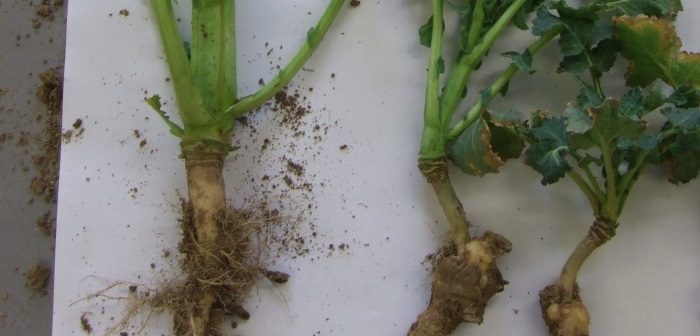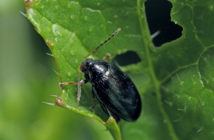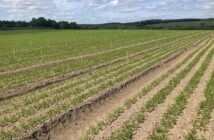“PGRO is offering a rapid molecular test for the detection and quantification of the brassica clubroot pathogen Plasmodiophora brassicae in the soil that can be used as a risk assessment tool by growers,” says Roger Vickers, PGRO’s Chief Executive. “The test is proving invaluable to close rotation intensive vegetable producers as well as to growers of oilseed rape – which is the most commonly grown brassica crop in the UK.
“Clubroot infection can cause significant, or even complete, crop losses when infection is severe, and is exacerbated by close rotations. The pathogen responsible (Plasmodiophora brassicae) can persist in soils for at least 15 years, so cannot be managed practically by extending rotations.
“Varietal resistance remains the most effective method of clubroot control, however, the resistance source is not effective against all pathotypes and resistance breaking strains have become more prevalent.
“Plants can wilt in hot, dry weather, be very stunted or can be lost completely. The galls on roots that give the disease its common name, affect normal root function, reducing water and nutrient uptake. Large root galls will often disintegrate with secondary rots seriously impairing root function.
Dr Lea Herold, PGRO Plant Pathologist explains that the test, which was launched last summer, determines the number of pathogen resting spores per gram of soil. “These spores germinate in the presence of host plants, leading to infection if surrounding conditions are favourable for disease development. The higher the numbers of spores per gram soil the higher the risk of disease development. Growers receive a risk indicator for their soil, with the level of risk defined on a 1-3 scale (slight, moderate or severe) according to infection levels identified as set out in AHDB Horticulture Project CP 099a.
To use the PGRO test, growers should send a soil sample in a sealed plastic bag marked ‘Brassica Clubroot Test’ to PGRO laboratory, Great North Road, Thornhaugh, Peterborough, Cambridgeshire PE8 6HJ.
It is most important to produce a representative soil sample, especially as the incidence of clubroot is likely to be patchy across the field. The PGRO web site (www.pgro.org) has the latest PGRO Technical Update on soil sampling protocols: ‘Technical Update 42 – A guide when sampling soil for microbe analysis.’
The resulting sample should be 1kg of soil sampled from 5cm-25cm depth of soil and representative of whole field, and be sent with full field reference and grower contact details.
Tests will be charged at £97.75 per sample and a two-week turnaround time should be allowed for.




